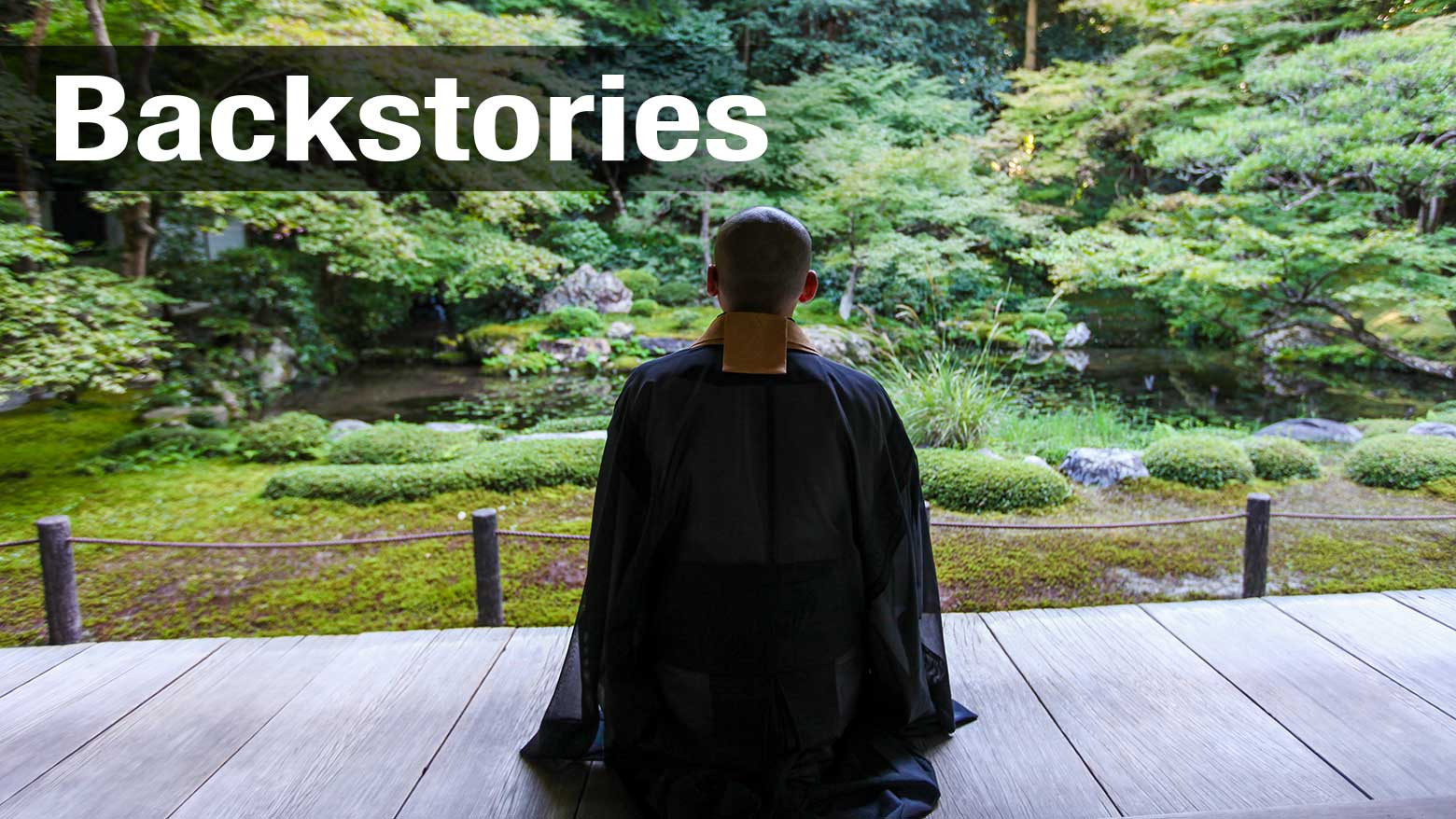Unprecedented 24-hour live feed from a famous temple
A famous temple in the ancient capital Nara called Todaiji has closed the entrance of the main hall to prevent the spread of the coronavirus.
Instead, the temple has opened a front window so people can see the face of the Great Buddha inside. The temple has started an unprecedented 24-hour live feed of the figure. Monks began praying every day at noon from April 1 for the end of pandemic. People viewing the feed can pray together.
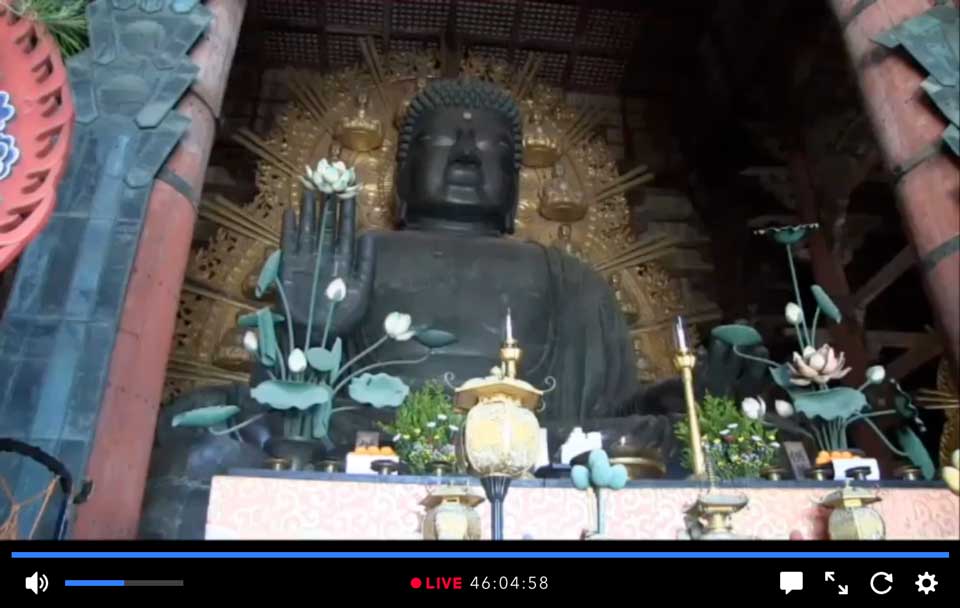
The Great Buddha was created in the 8th century with prayers that lives would benefit by being saved from epidemics, disaster and unrest. Todaiji Temple says it wants people to feel that the Great Buddha is always watching over them in unstable times and be like a rock for their prayers.
Monks use words to awaken people
Buddhist monks are using their voices to reach out to people.
Tsukiji Honguwanji Temple in Tokyo has been posting videos on YouTube of monks preaching since the temple suspended sermons to prevent the spread of the virus.
One monk talked about the difference between a world that is "taken for granted" and a world that is "thankful." He said that when we think we are deprived of what is taken for granted, we feel pain. But if we don't take things for granted, we can be thankful.
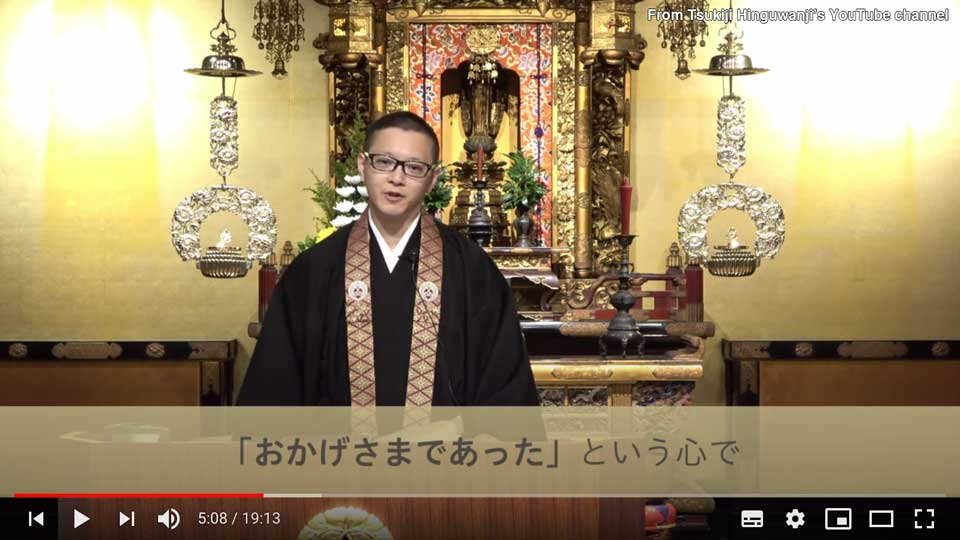
Vice Director Higashimori Naoto says Buddhism and temples have long sent messages when the country faced difficulties. He says monks want to help people to ease anxiety and pain, and to recover peace of mind in the current circumstances.
Such messages are not only delivered online. Temples in Japan usually have bulletin boards around their gates, not only to announce the dates of events, but also to send message that priests want to convey to passersby.
In late April, Myofukuji Temple in Tokyo carried the message: "Never let your heart be infected by virus. Never lose your human spirit."
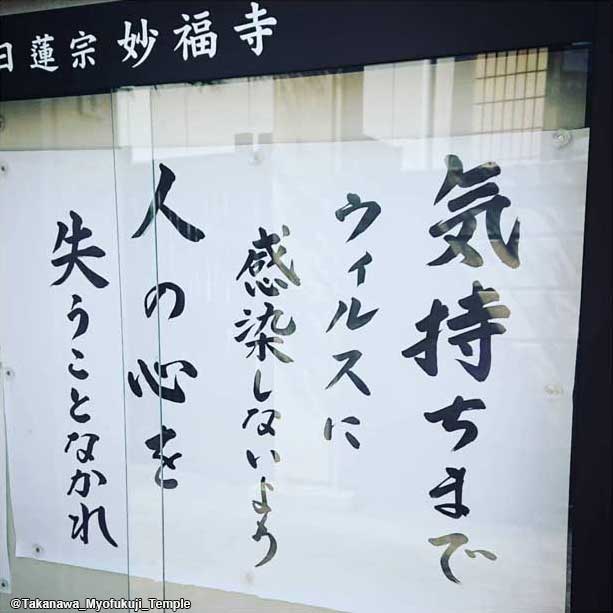
Tomikawa Dairyo, the priest of the temple, said he wrote the message with the feeling there is too much fear and anxiety in society, as seen with panic buying at supermarkets, attacks on infected people, and vigilantism. Tomikawa says he wanted people to hold on to their kindness and compassion.
His message was shared on social media. Some Twitter users commented that "I decided to overcome this difficult time with kindness and strength," and, "I was awakened by the message."
People flock to mindfulness meditation
Mindfulness meditation has gained popularity as a practical way to ease one's mind. Mindfulness has its origin in Buddhist meditation, meaning to bring one's attention to the present moment, without judgment.
It has been popular among tech companies in Silicon Valley as a way to improve concentration and memory. Its effectiveness has now come into new focus during the coronavirus crisis.
Since late April, 35 monks from temples of different sects across Japan have gathered online to organize mindfulness meditation called "Healthy Temple Online." the number of participants has been increasing, and now surpasses 150 per day.
The event starts at 7am every morning, with one monk playing host. Participants first stretch, then meditate by focusing their minds on breathing. After meditation, they share their thankful experiences and what they want to do in the future to cultivate a positive mood.
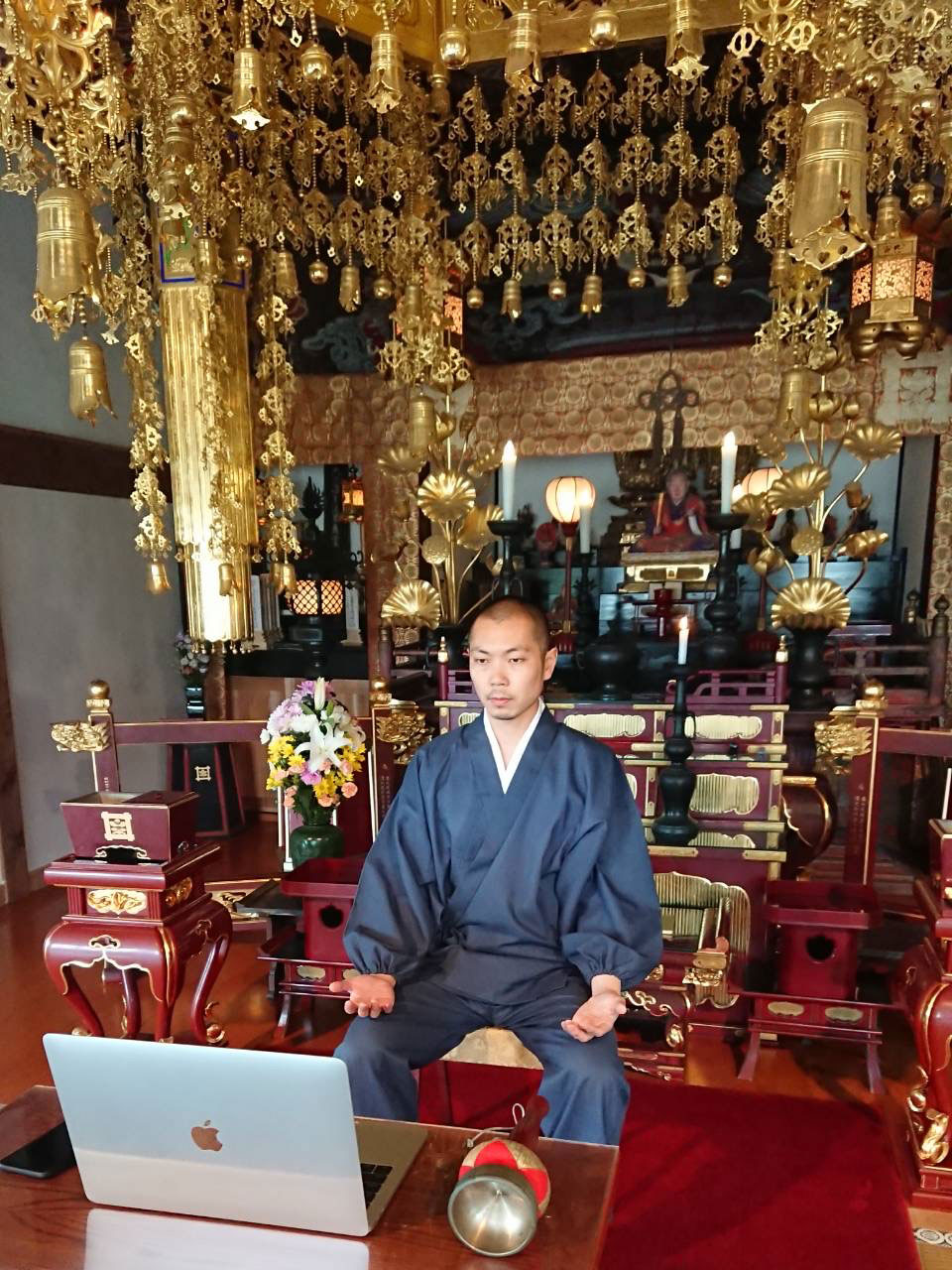
Matsumura Kazunori, the planner of the event, says meditation classes create a daily rhythm when people need to work from home. Matsumura also says that by practicing mindfulness meditation, people can set thinking aside and refresh their minds, and be able to organize their thoughts and physical well-being by themselves.
Even though the state of emergency has been lifted in Japan, difficult times continue. Buddhism stands by people and helps them focus on their inner lives, unclouded by fear.
